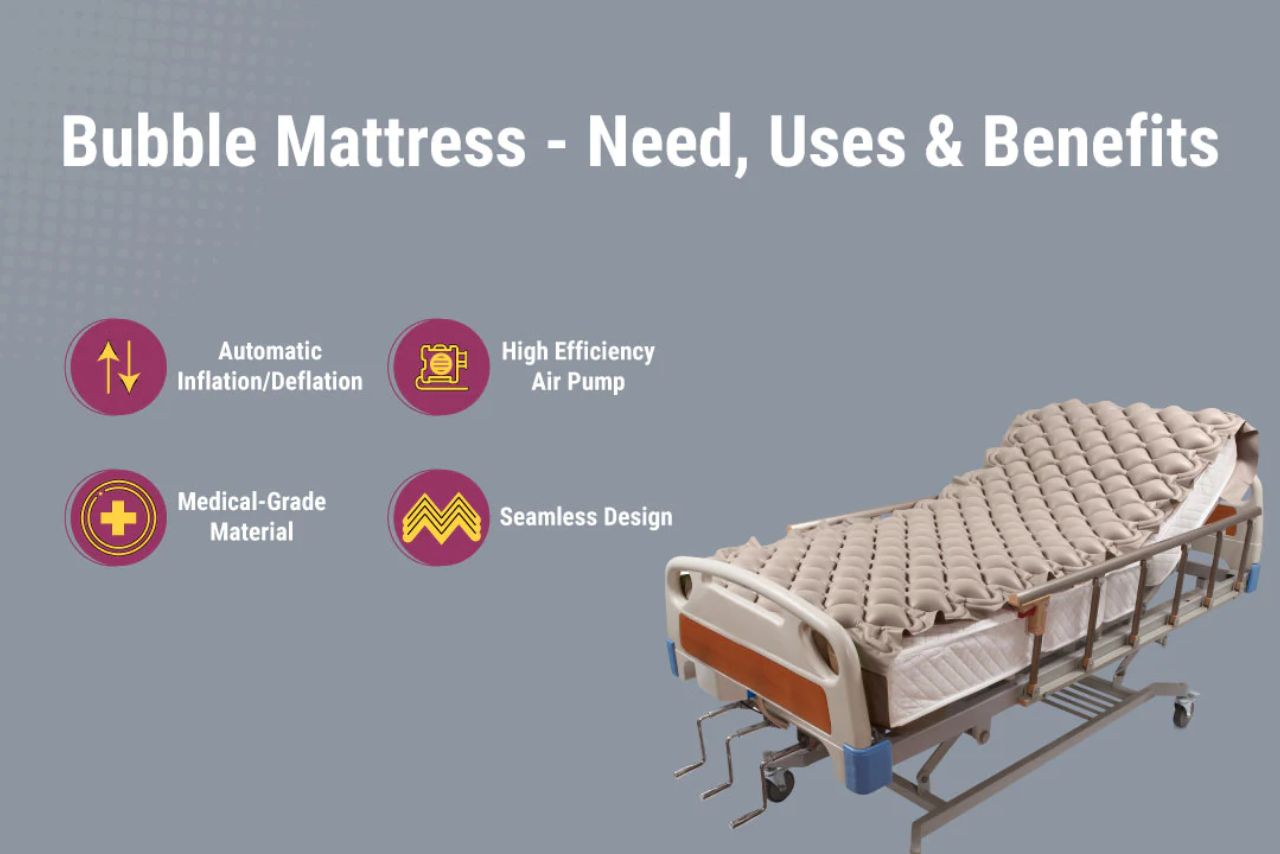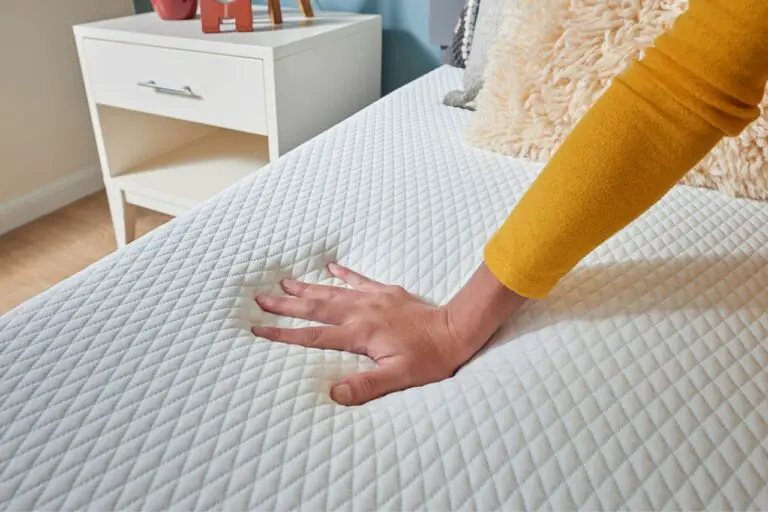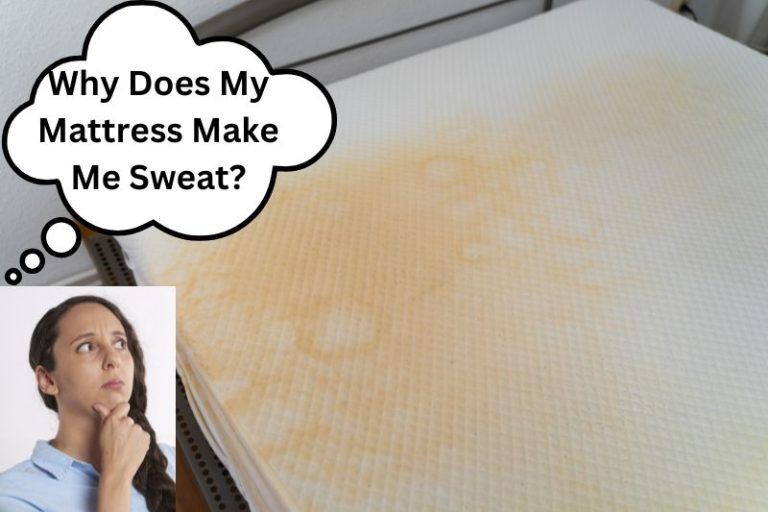Anti Decubitus Mattress Benefits: The Amazing Benefits!

Anti Decubitus Mattress Benefits:
Anti-decubitus mattresses, also known as pressure-relieving mattresses, help prevent bedsores (pressure ulcers) by redistributing body weight and reducing pressure on specific points. These mattresses enhance circulation and comfort for individuals who are bedridden or have limited mobility.
An anti decubitus mattress offers a range of benefits for individuals who are at risk or suffering from pressure ulcers, commonly known as bedsores.
These specialized mattresses are designed to alleviate pressure on specific areas of the body, promote circulation, and provide optimal comfort for patients who spend long periods in bed.
By distributing weight evenly and reducing friction, an anti decubitus mattress can help prevent the development of painful sores and support the healing process.
In this article, we will explore the various benefits of using an anti decubitus mattress and how it can significantly improve the quality of life for those in need.
Understanding Decubitus Ulcers:
Decubitus ulcers, also known as pressure sores or bedsores, are a common health issue faced by individuals who have limited mobility or spend extended periods of time in bed or chairs.
These ulcers develop when there is prolonged pressure on certain areas of the body, leading to damage and breakdown of the skin and underlying tissues.
Here are some key points to help you understand decubitus ulcers:
- Causes: The primary cause of decubitus ulcers is continuous pressure applied to specific parts of the body. Other factors that contribute to their development include friction, shearing forces (when layers of tissues slide against each other), moisture, poor nutrition, compromised blood circulation, and impaired sensation.
- Risk Factors: Certain individuals are more susceptible to developing decubitus ulcers than others. These risk factors include older age, immobility due to illness or injury, limited sensory perception (such as paralysis), malnutrition or dehydration, urinary or fecal incontinence (leading to increased moisture), and chronic medical conditions like diabetes or vascular diseases.
- Stages: Decubitus ulcers progress through different stages based on their severity:
- Stage 1: The mildest form with non-blanchable redness indicating potential tissue damage.
- Stage 2: Partial-thickness skin loss involving the epidermis and sometimes dermis.
- Stage 3: Full-thickness skin loss extending into subcutaneous tissue.
- Stage 4: Deep wounds affecting muscles, tendons, bones; may involve necrosis.
- Complications: If left untreated or poorly managed, decubitus ulcers can lead to serious complications such as cellulitis (skin infection), osteomyelitis (bone infection), sepsis (bloodstream infection), gangrene (tissue death), deep abscesses, and even death.
- Prevention: Preventing decubitus ulcers is crucial, especially for individuals at risk. Strategies include regular repositioning or turning to relieve pressure, maintaining good hygiene and skin care practices, using specialized support surfaces like anti-decubitus mattresses or cushions, providing proper nutrition and hydration, managing incontinence effectively, and promoting overall mobility as much as possible.
Remember that understanding the causes, risk factors, stages of development, potential complications, and preventive measures associated with decubitus ulcers can help you take proactive steps towards their prevention and management.
How Does an Anti Decubitus Mattress Work?
An anti decubitus mattress, also known as a pressure relief or alternating pressure mattress, is designed to prevent and treat bedsores or pressure ulcers in patients who are immobile or have limited mobility.
Here’s how it works:
- Pressure Redistribution: The primary function of an anti decubitus mattress is to redistribute the body’s weight evenly over its surface, minimizing pressure points on vulnerable areas such as the hips, shoulders, and heels.
- Air Cell Technology: These mattresses often employ air cell technology where individual air cells inflate and deflate alternately according to a set cycle. This cyclic inflation and deflation relieve continuous pressure on specific body parts by varying the contact area with the mattress.
- Alternating Pressure: By constantly changing which cells are inflated and deflated, an anti decubitus mattress prevents prolonged compression on any one area of the body. This reduces the risk of tissue damage caused by constant pressure.
- Enhanced Blood Circulation: The alternating pressure created by these mattresses helps stimulate blood circulation in immobilized individuals. Improved circulation can aid in delivering essential nutrients and oxygen to tissues while removing waste products more efficiently.
- Moisture Management: Some advanced models incorporate moisture management features that help control humidity levels around the patient’s skin. Maintaining optimal moisture levels can contribute to overall skin health and reduce friction-related injuries.
- Adjustable Settings: Many anti decubitus mattresses allow for customization based on user preferences and medical requirements. Adjustable settings may include cycle length, firmness level, weight capacity adjustments, etc., providing flexibility for different patient needs.
Using an anti decubitus mattress offers several benefits beyond preventing bedsores alone it promotes comfort, improves sleep quality due to reduced discomfort from pressure points, aids in pain management for patients with existing sores or injuries and ultimately contributes to overall patient well-being.
Remember, while anti decubitus mattresses are designed to assist in preventing and treating pressure ulcers, they should be used as part of a comprehensive care plan that includes regular repositioning, proper nutrition, and diligent skin care.
Pressure Redistribution and Prevention:
When it comes to preventing pressure ulcers or bedsores, an anti-decubitus mattress plays a crucial role.
Here’s how it helps with pressure redistribution:
- Even Weight Distribution: Anti-decubitus mattresses are designed to evenly distribute the weight of the body over a larger surface area. This reduces pressure on specific points such as the hips, shoulders, and heels.
- Reduced Friction and Shear: These specialized mattresses minimize friction between the patient’s skin and the mattress surface, reducing shear forces that can lead to skin breakdown.
- Pressure Relief Technology: Many anti-decubitus mattresses incorporate advanced pressure relief technologies like air cells or foam layers that adapt to the individual’s body shape. These technologies help in redistributing pressure away from vulnerable areas.
- Customizable Settings: Some models of anti-decubitus mattresses allow healthcare professionals to adjust firmness levels or customize settings according to patients’ needs for optimal comfort and prevention of bedsores.
- Air Circulation: Proper ventilation is essential for maintaining healthy skin integrity. Anti-decubitus mattresses often feature perforations or air channels that enhance air circulation around the body, reducing heat buildup and moisture accumulation.
- Prevention of Tissue Ischemia: By minimizing prolonged compression on soft tissues, these mattresses promote adequate blood flow throughout the body, preventing tissue ischemia (lack of oxygen supply) that can lead to ulcer formation.
Using an anti-decubitus mattress not only aids in redistributing pressure but also contributes significantly to overall patient comfort during extended periods of bed rest or immobility.
Enhanced Comfort for Bedridden Patients:
- Anti decubitus mattresses provide enhanced comfort to bedridden patients by reducing pressure on their body.
- The mattresses are designed with special features like air cells or foam layers that distribute the patient’s weight evenly, minimizing pressure points and preventing the formation of bedsores.
- By relieving pressure, these mattresses help alleviate discomfort and pain experienced by bedridden individuals.
- The adjustable firmness feature allows patients to find their preferred level of comfort, ensuring a good night’s sleep and promoting relaxation during extended periods in bed.
- With improved comfort, patients can experience reduced stress levels and an overall improvement in their well-being.
Key Benefits:
- Pressure Redistribution: Anti decubitus mattresses redistribute the patient’s weight across a larger surface area, lowering the risk of pressure ulcers or sores caused by prolonged immobility.
- Pain Relief: By eliminating excessive pressure on specific body parts such as hips, shoulders, and heels, these specialized mattresses aid in pain relief for bedridden patients.
- Improved Blood Circulation: The even distribution of weight promotes better blood circulation throughout the body. This helps prevent circulatory issues related to lack of movement.
- Prevention of Bedsores: One major benefit is prevention; anti decubitus mattresses minimize the occurrence of painful and potentially dangerous bedsores that can develop due to constant friction between skin and bedding materials.
- Enhanced Support: These mattresses offer optimal support to different areas of the body like spine alignment which can help reduce backaches or other musculoskeletal pains associated with long-term lying positions.
Anti-decubitus mattresses play a crucial role in providing enhanced comfort for those who spend extended periods confined to a bed.
Through innovative design elements such as pressure redistribution technology and customizable firmness settings, these specialized beds ensure better sleep quality while mitigating common issues experienced by immobilized individuals such as soreness, pain, and the formation of bedsores.
Reduced Risk of Infections:
An anti decubitus mattress provides several benefits when it comes to reducing the risk of infections.
Here’s how:
- Pressure Redistribution: These specialized mattresses are designed to distribute pressure evenly across the body, reducing the occurrence of pressure ulcers or bedsores. By preventing the formation of these wounds, the risk of infection is significantly reduced.
- Improved Air Circulation: Anti decubitus mattresses often feature air cells or ventilation systems that enhance airflow between the patient and the mattress surface. This helps in maintaining a dry and moisture-free environment, making it difficult for bacteria or fungi to thrive and cause infections.
- Easy Cleaning: Many anti decubitus mattresses are made with materials that can be easily cleaned and disinfected, minimizing the chances of pathogens lingering on its surface. Regular cleaning routines can effectively reduce cross-contamination risks associated with infectious agents.
- Antimicrobial Properties: Some advanced models come equipped with antimicrobial coatings or treatments that actively inhibit microbial growth on their surfaces. These added layers serve as an extra barrier against harmful organisms, further reducing infection risks.
- Support for Proper Hygiene Practices: Anti decubitus mattresses help caregivers maintain proper hygiene practices by allowing easy access to patients’ skin for regular cleaning and inspection purposes. By keeping patients clean and free from bodily fluids, infections caused by poor hygiene can be prevented.
In summary, investing in an anti-decubitus mattress offers significant advantages in terms of reducing infection risks among individuals at risk of developing pressure ulcers or bedsores.
Promoting Faster Healing:
An anti-decubitus mattress offers several benefits that can contribute to faster healing for individuals who are bedridden or have limited mobility.
Here are some ways these mattresses promote quicker healing:
- Pressure Redistribution: Anti-decubitus mattresses are designed to distribute the pressure evenly across the body, relieving pressure points and reducing the risk of developing bedsores. By minimizing constant pressure on certain areas, these mattresses help improve blood circulation, allowing oxygen and nutrients to reach tissues more efficiently. This enhanced circulation can aid in tissue repair and regeneration, ultimately speeding up the healing process.
- Moisture Management: Many anti-decubitus mattresses incorporate moisture-wicking properties or breathable materials. These features help maintain a dry environment by dissipating excess heat and moisture from sweat or bodily fluids. Proper moisture management is crucial for preventing skin breakdown and infections, thereby facilitating faster wound healing.
- Friction Reduction: The smooth surface of an anti-decubitus mattress reduces friction between the patient’s body and the mattress itself. Minimizing friction is important as it can lead to shear forces that damage delicate skin layers, hindering proper healing. By reducing friction-related injuries, patients can experience accelerated recovery times.
- Enhanced Comfort: Resting on a comfortable surface contributes positively to an individual’s overall well-being during their recovery period. Anti-decubitus mattresses often feature adjustable firmness levels or customizable settings tailored to individual preferences. Improved comfort helps minimize discomfort caused by prolonged immobility while promoting relaxation conducive to better restorative sleep patterns.
In summary, using an anti-decubitus mattress promotes faster healing through effective pressure redistribution, efficient moisture management, reduced friction-related injuries, and enhanced comfort levels for patients recovering from various conditions or surgeries requiring extended periods of bed rest
Choosing the Right Anti Decubitus Mattress:
When it comes to selecting an anti decubitus mattress, there are a few key factors to consider.
The right choice can greatly enhance the effectiveness of pressure ulcer prevention and provide optimal comfort for patients.
Here’s what you need to keep in mind:
- Pressure Redistribution: Look for a mattress that offers excellent pressure redistribution properties. This helps distribute body weight evenly and reduces the risk of developing pressure ulcers.
- Material: Consider the materials used in the construction of the mattress. High-quality foam or air-filled cells are commonly used as they offer good support and cushioning.
- Air Circulation: Ensure that the chosen mattress promotes proper air circulation to minimize moisture buildup and maintain skin integrity.
- Size: Select a size that fits your specific requirements, whether it is for home care or healthcare facilities like hospitals or nursing homes.
- Weight Capacity: Check if the mattress can support the weight of your intended users comfortably without compromising its performance.
- Waterproof Cover: Opt for a waterproof cover that is easy to clean and provides protection against spills, stains, and potential infection sources.
- Maintenance Needs: Consider how easy it is to maintain and clean the mattress regularly without causing damage or affecting its performance over time.
- Certifications & Standards Compliance: Look out for mattresses approved by relevant regulatory bodies such as FDA (Food and Drug Administration) or CE (Conformite Europeene). These certifications ensure adherence to quality standards and safety guidelines.
Remember, consulting with healthcare professionals or specialists who have experience in using anti decubitus mattresses can provide valuable insights into choosing one suitable for individual needs.
Conclusion: Anti Decubitus Mattress Benefits
In conclusion, anti-decubitus mattresses offer a wide range of benefits for individuals prone to pressure ulcers or bedsores.
These specialized mattresses are designed to alleviate pressure points and promote better blood circulation, ultimately reducing the risk of developing painful wounds.
By distributing body weight evenly and providing optimal support, anti-decubitus mattresses help prevent the formation of pressure ulcers by minimizing friction and shear forces on the skin.
The use of advanced materials such as memory foam and air chambers allows these mattresses to adapt to individual body contours, ensuring maximum comfort while maintaining proper alignment.
Furthermore, anti-decubitus mattresses play a vital role in enhancing overall sleep quality for those at risk.
By reducing discomfort during extended periods of bed rest, they contribute to uninterrupted sleep patterns. Good quality sleep not only aids in faster recovery but also improves mood and cognitive function.
Investing in an anti-decubitus mattress is a proactive measure that can significantly benefit individuals with limited mobility or those confined to bed for extended periods.
With their ability to minimize pressure ulcers, enhance comfort, and promote better sleep quality, these specialized mattresses provide crucial support for maintaining overall well-being.







